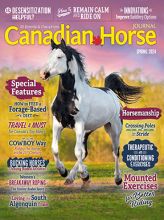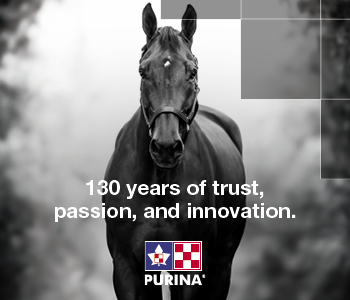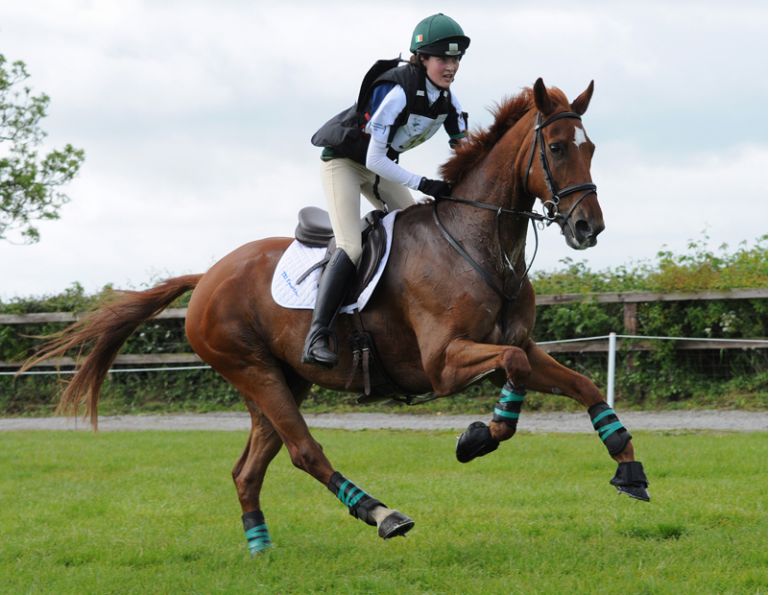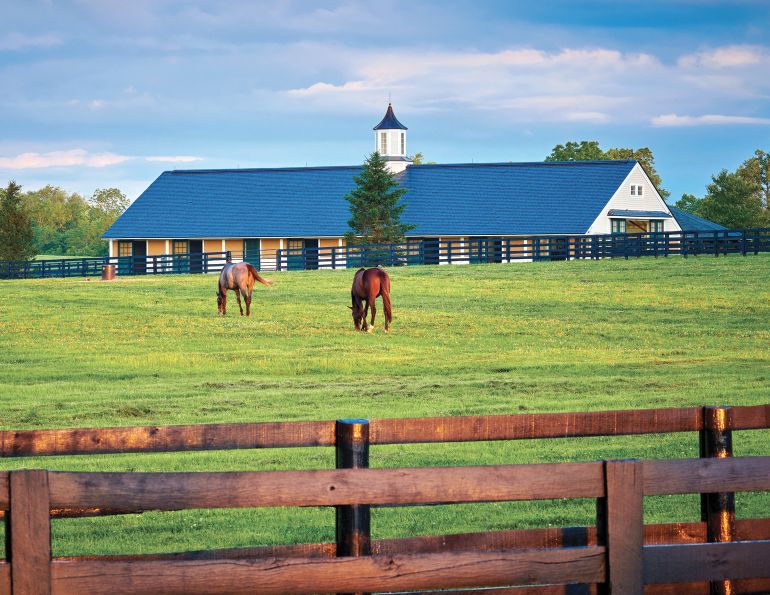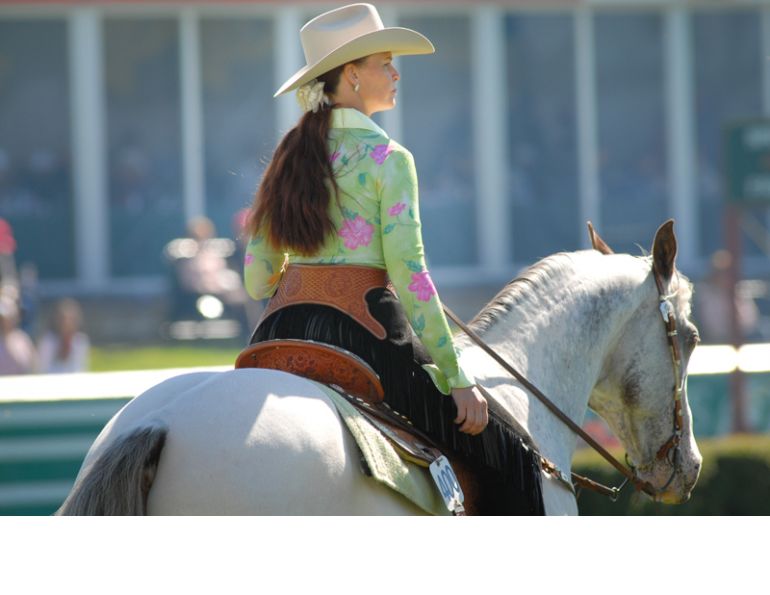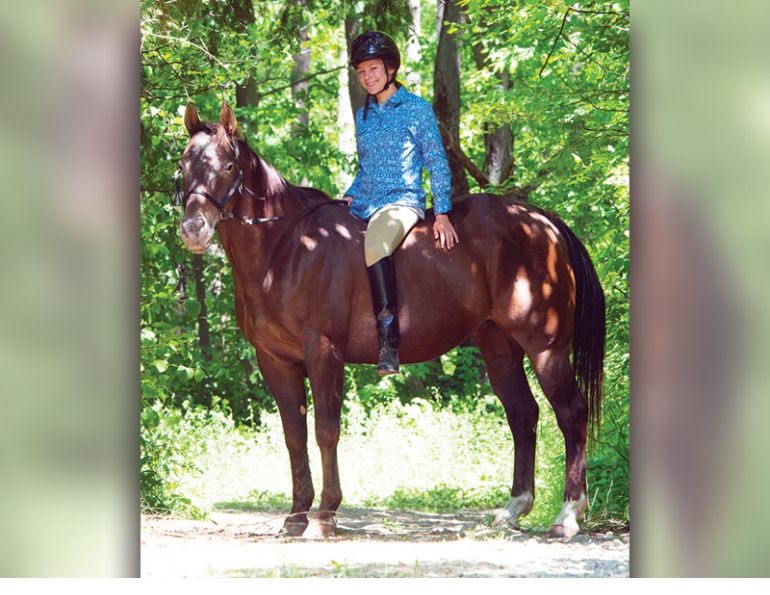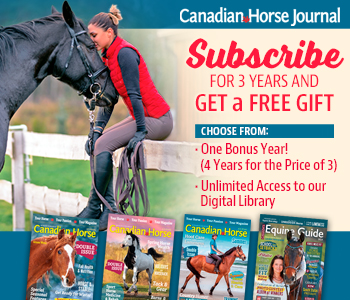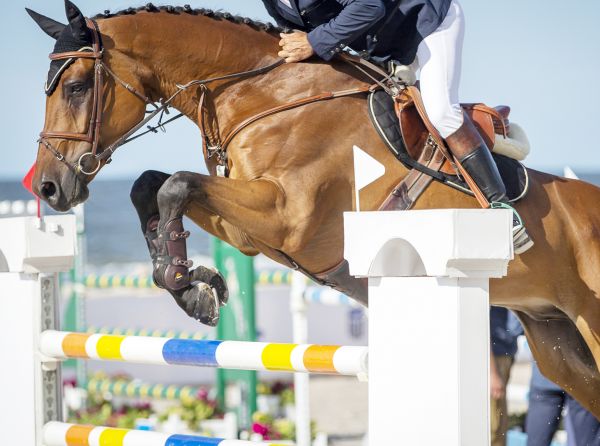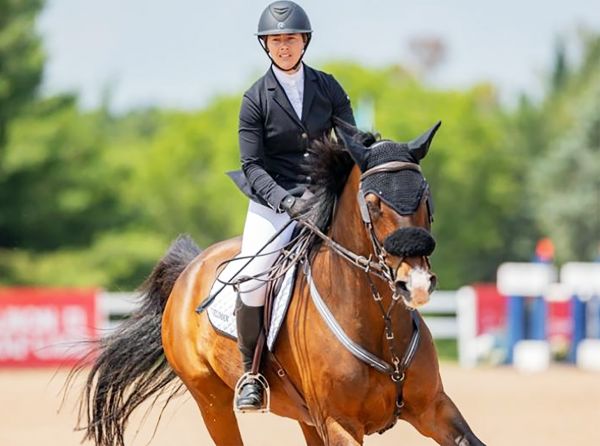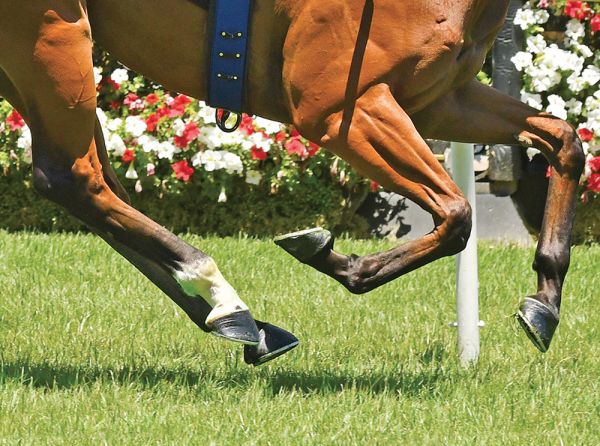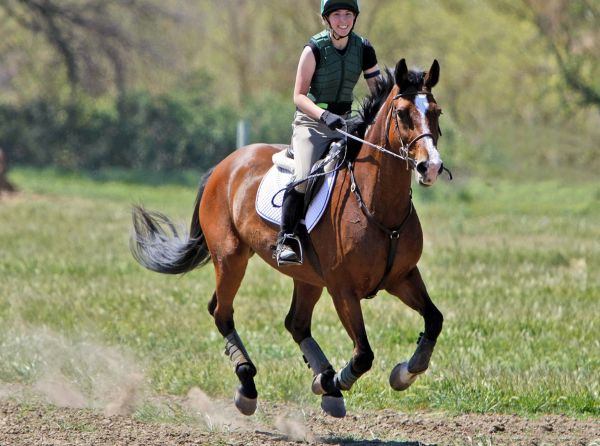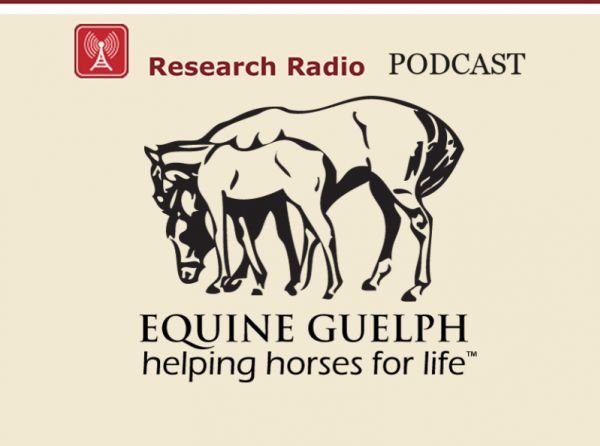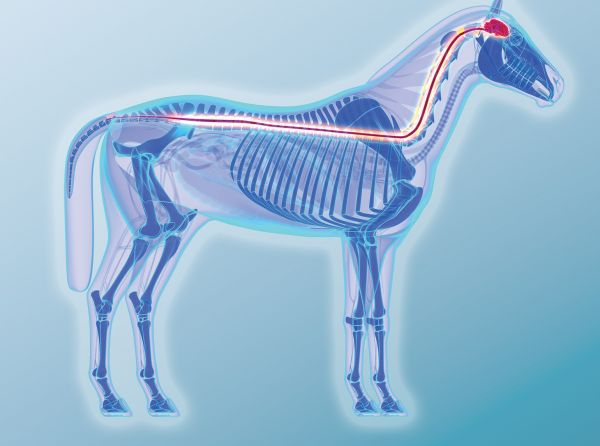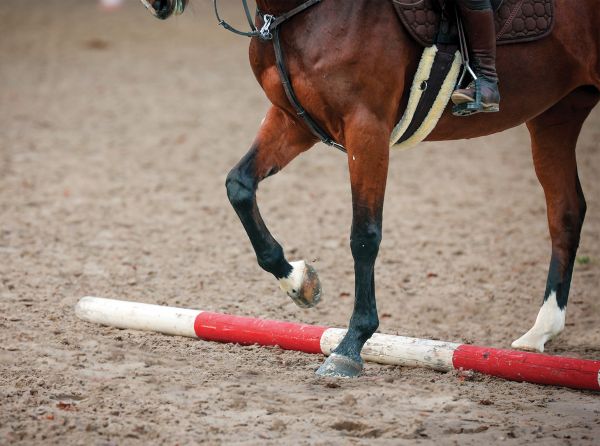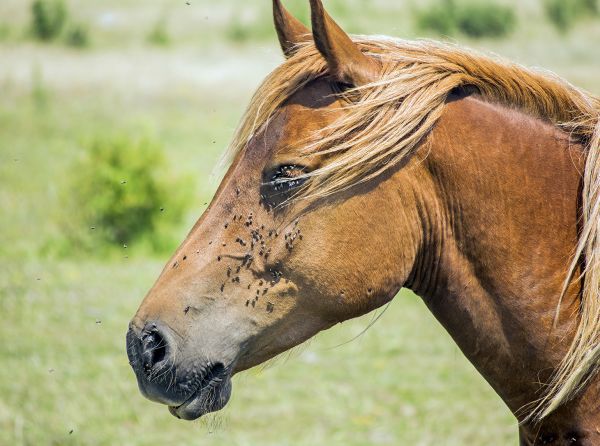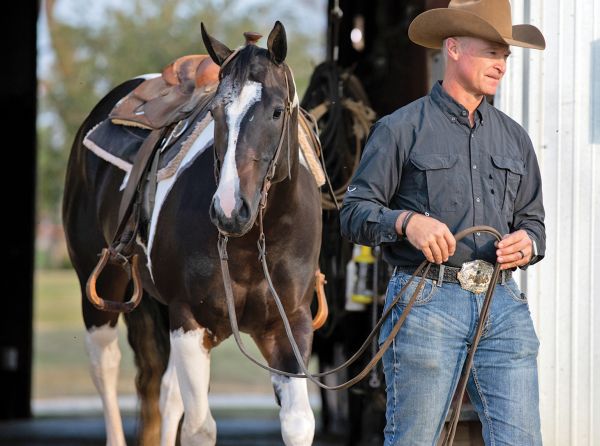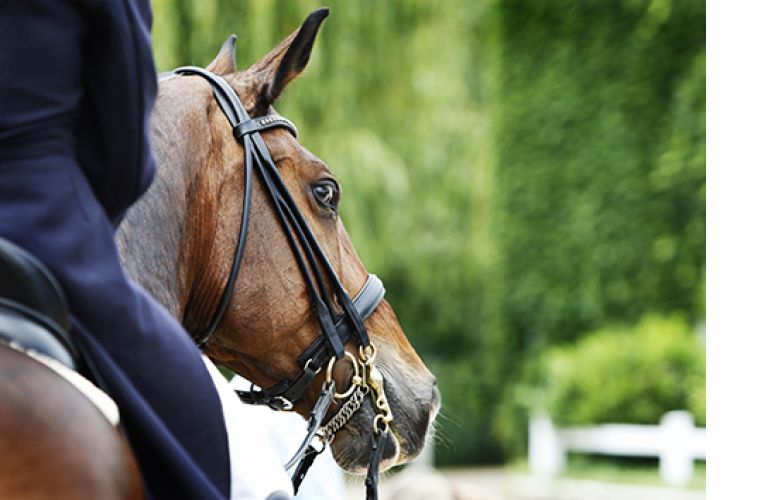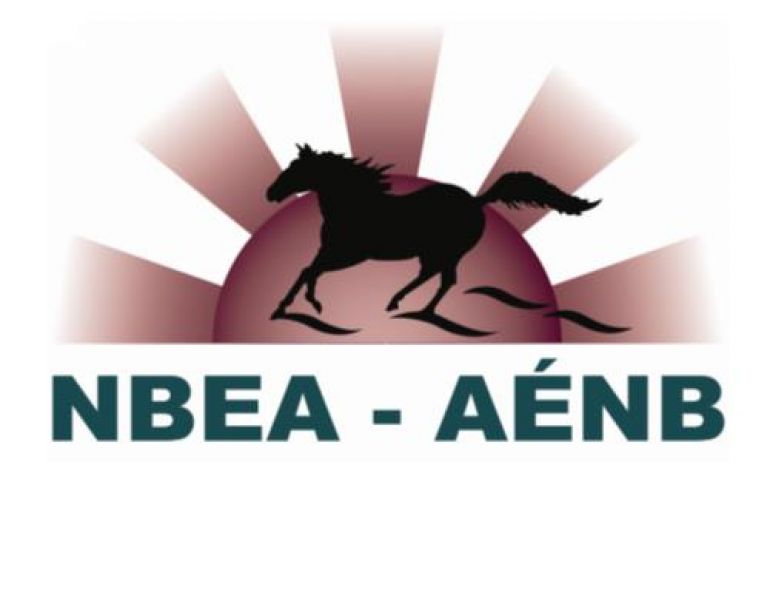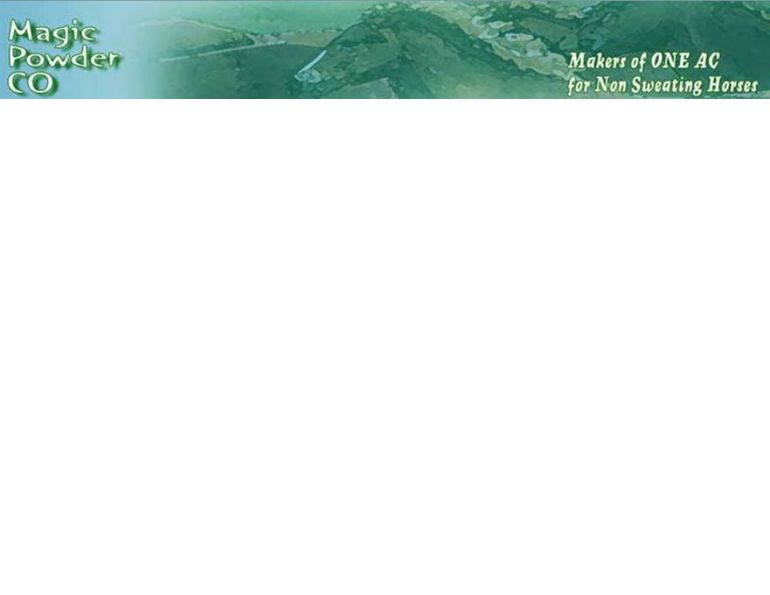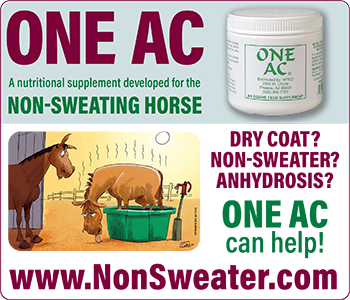By Annika McGivern
When you tack up your horse each day, what are you looking to accomplish? Regardless of your discipline, and whether you compete or not, I’m willing to bet that your goals are always related to learning. As riders we want to learn the physical, technical, and mental skills involved in partnering with a horse. We also work to help them learn the aids, manage their own bodies and nervous systems, and respond consistently and safely in a variety of circumstances. It all comes back to learning.
In this article I will share a conversation with Equine Learning and Behaviour Consultant, Emma Kjelson. Together, we look at how environment and circumstances impact learning. By asking better questions we can start to create better learning experiences for ourselves and our horses every time we get in the saddle. The result? Happier horses, happier humans, and a lot more progress.
Emma Kjelson was inspired to become an Equine Learning and Behaviour Consultant through her desire to understand one of her own horses who was challenging everything she knew about horsemanship. Obsessed with resource guarding, this horse regularly and violently attacked other horses and dogs. Determined to help her horse be a happy, adjusted member of her herd, Kjelson discovered the power of combining science, ethology, and learning theory to understand and change horse behaviour. Today, as a qualified practitioner, she sees every day how respecting the learning and psychological needs of horses creates better behaviour and protects horse well-being.

Both horses and humans learn better in low-stress environments. The horse’s stress will be significantly reduced if his natural needs of friends, forage, and freedom are met. Photo: Shutterstock/Jitka Cernohorska
“I have a ton of stories, but that experience I had with my own horse is closest to my heart because I can see the impact of the work every day in my own herd dynamics. That horse’s life and well-being drastically improved because of the work I did. He is in a herd of six now and functions beautifully as a herd member,” she says.
Related: Get Your Horse on a Track System
As an Equestrian Mental Performance Coach, I often work with riders who approach each ride with a preconstructed set of expectations. When either they or their horse fail to meet these expectations, they feel like a failure. This leads to asking unhelpful questions such as: What’s wrong with me? Why am I not good enough? What’s important to recognize is that 99 percent of the time when we sit on our horses, the goal is to learn something, not perform perfectly. This helps us to zoom out and consider the bigger picture of the learning environment we are creating. If these riders view both themselves and their horses as learners with specific learning needs, it can dramatically change the way they respond when things are not going according to plan. The questions change to: What’s preventing me or my horse from learning right now? What learning needs aren’t being met?
Kjelson often guides her clients through a similar perspective shift. “A lot of my clients come to me because they’ve tried everything they know how to do with their horse to change their behaviour, and they’re stumped,” says Kjelson. Modern science provides fascinating insight into how horses learn, and the more we understand a horse’s needs as a learner, the more able we are to create an optimal learning environment for them.

Environment and circumstances impact learning. Always consider the bigger picture and create the optimal learning environment for your horse and yourself. Photo: Dreamstime/Donna Kilday
What is Learning Theory?
“Learning theory looks at how an individual receives, retains, and processes knowledge,” explains Kjelson. “Learning theory isn’t just about horses; it applies to all animals including humans. Learning theory encourages us to consider how an environment impacts an individual’s behaviours and how their needs are being met or not being met. In essence, learning theory looks at all the pieces that influence how an animal learns.”
- How do we create an optimal learning environment for our horses? Kjelson provides three key areas to consider:
- Horses need a low stress environment in order to learn well.
- Horses need teachers who can make things really clear to them.
- Horses require their natural needs to be met in all aspects of their lives in order to show up in the arena as calm, happy horses ready and willing to learn. These natural needs can be summed up as friends, forage, and freedom. Meeting these needs will significantly reduce the horse’s stress.
Interestingly, we can apply the same framework to ourselves. Just like horses, humans learn better in low stress environments. We also need to clearly understand what we are doing, and learn better when our own basic needs, such as safety, autonomy, and belonging, are being met.
Related: A Guide to Clicker Training
What can happen if the horse’s learning needs aren’t met?
When horses don’t have a positive learning environment, they start to exhibit maladaptive (undesirable) behaviours. They can shut down, become more fearful or more aggressive. “Not every horse looks the same when their needs aren’t being met, but you can be sure that if they’re not getting what they need these maladaptive behaviours will appear,” explains Kjelson. Looking at bad behaviour or learning challenges through the lens of learning theory helps us to ask better questions. The next time you have a struggling ride, ask yourself the following:
- Is there anything I can do to reduce my horse’s stress and/or my own stress?
- What can I do to make this clearer for my horse or myself?
- Is there a big picture need that isn’t being met, for me or my horse, that could be impacting how we are showing up in this moment?
- Could pain or a health issue be a factor in my horse’s behaviour?
Safety, Control, and Learning
One of the most important big picture needs is control. Just like humans, horses need to feel some degree of control to feel safe. Feeling a lack of control leads to maladaptive behaviours in all animals; however, as prey animals, horses are particularly impacted by the level of control they have in their environment.
“Because horses are large and powerful, humans are often threatened by or fearful of giving up some control, or what we perceive as control, to the horse,” explains Kjelson. “However, often the reality is that when we allow our horse to feel more in control we end up with a happier and more willing learner.”

The more we understand what horses need to learn, the better learning environment we can create for them. Photo: Clix Photography
Improving the control dynamic between you and your horse can have a really positive impact on the learning environment. “If you have a horse that’s behaving badly, the instinct is often to increase our restraint tactics, for example, using a stronger bit or a shorter lead line. This can help us feel more in control, but it really reduces the horse’s experience of control over their own bodies,” says Kjelson. Instead of increasing restraint, she recommends removing or reducing the restraint tools and simply slowing down the process to reduce the horse’s stress and checking that you are being extremely clear in what you’re asking the horse to do.
Another tip that Kjelson shares to increase the horse’s experience of control is to use an activity that the horse likes and would choose to do themselves as a reward. Maybe your horse loves stretching, or perhaps they love to jump. If you’re working on something new and challenging, such as a leg yield, pop them over a small jump or allow a stretch as a reward for progress. This will help the horse feel more in control through doing something they enjoy and are already confident in.
Related: Make Me Worthy of My Horse

When horses display undesirable behaviour, the human instinct is control. Humans are often fearful of giving up control to their large and powerful horses. Yet, as prey animals horses need to feel some degree of control over their environment to feel safer and be more willing to learn. Photo: iStock/Acceptfoto
Kjelson believes that the most important mindset shift we can make in the horse industry is to recognize that if we focus on meeting our horses’ needs first, we will have happier, healthier, and longer-lasting horses. “It’s of benefit to us to meet their needs first as it helps us accomplish our own goals faster. People are sometimes afraid that if they focus on meeting the horse’s needs, they could be judged for doing things differently. They also worry about giving up control to the horse and feeling unsafe. However, I see a lot of positive change happening in the horse industry,” she says. “It’s important to give people permission to do things differently.”
Putting It All Together
Making progress with your horse depends on your ability, and your horse’s ability, to learn. Remembering to see yourself and your horse as learners before all else helps you to become aware of and change your environment to support better learning. Always consider the learning environment you are in. Remember to ask yourself the key questions outlined above when things get tough, and to use creativity when facing challenges. Sometimes, to solve a problem, we must dare to be different or try something new!
Related: Do Horses Know How Their Horses Learn?
Related: The Power of Play with Our Horses
Main Photo: iStock/Elena Gromova


